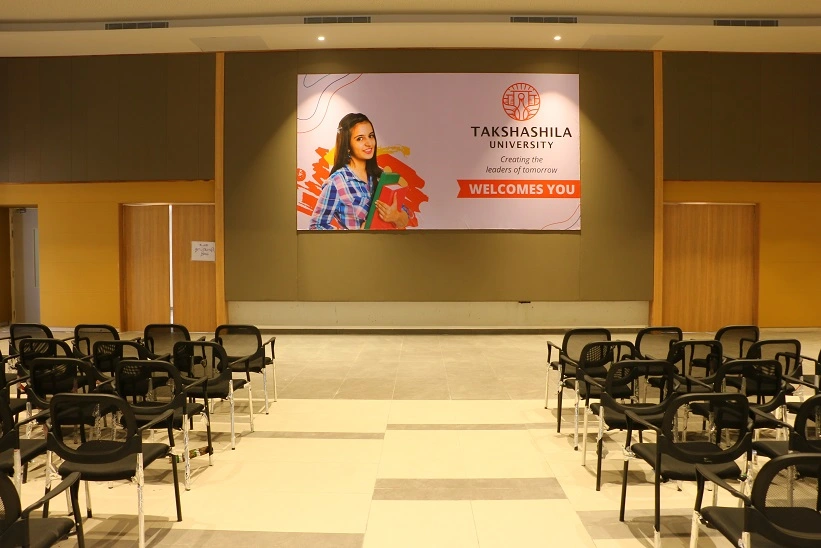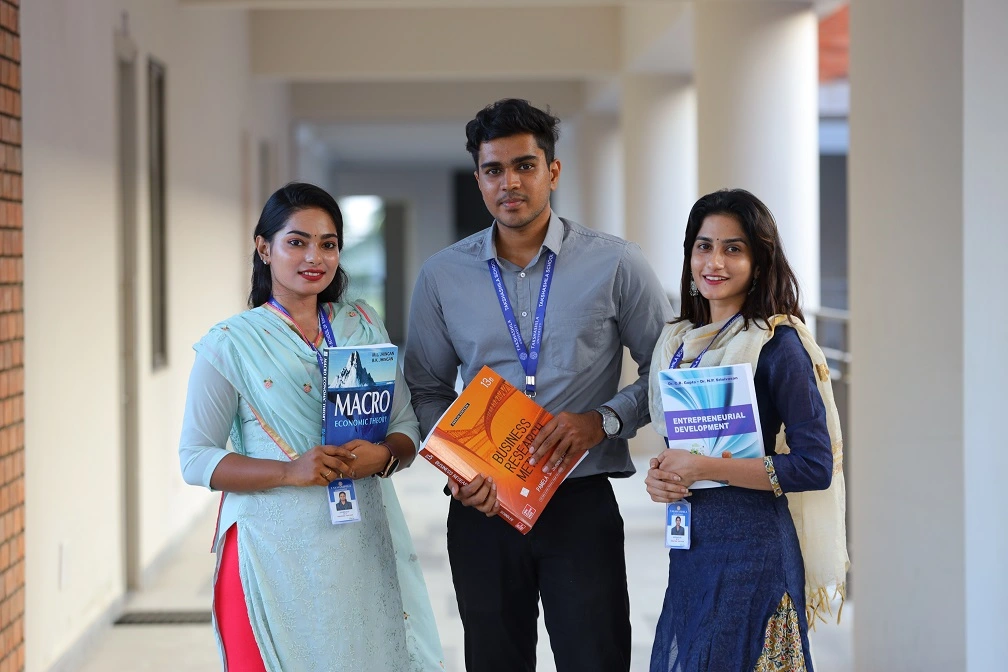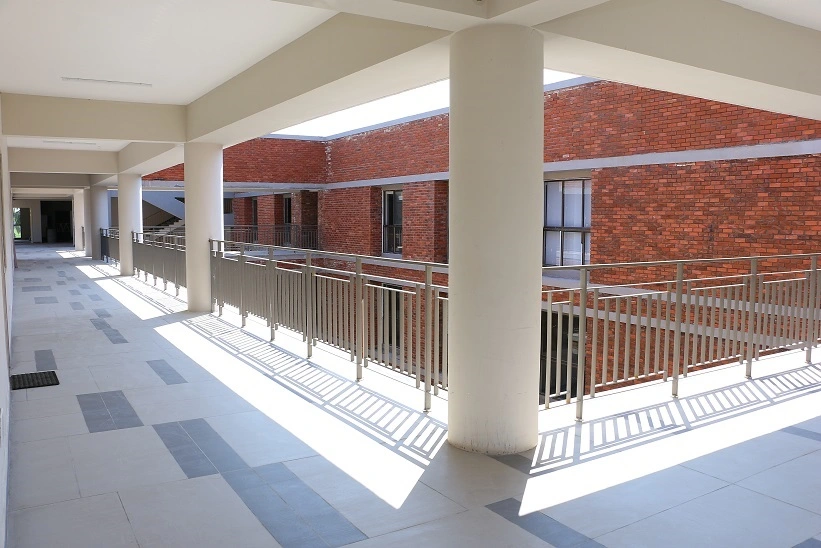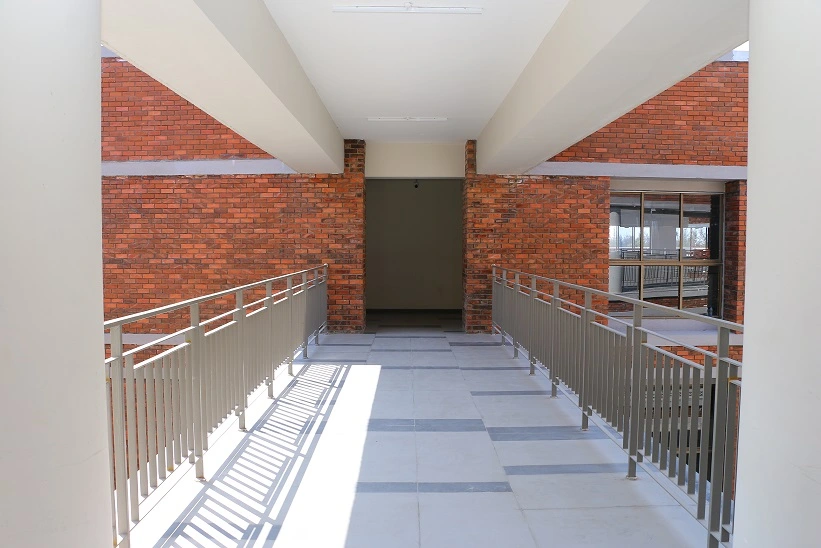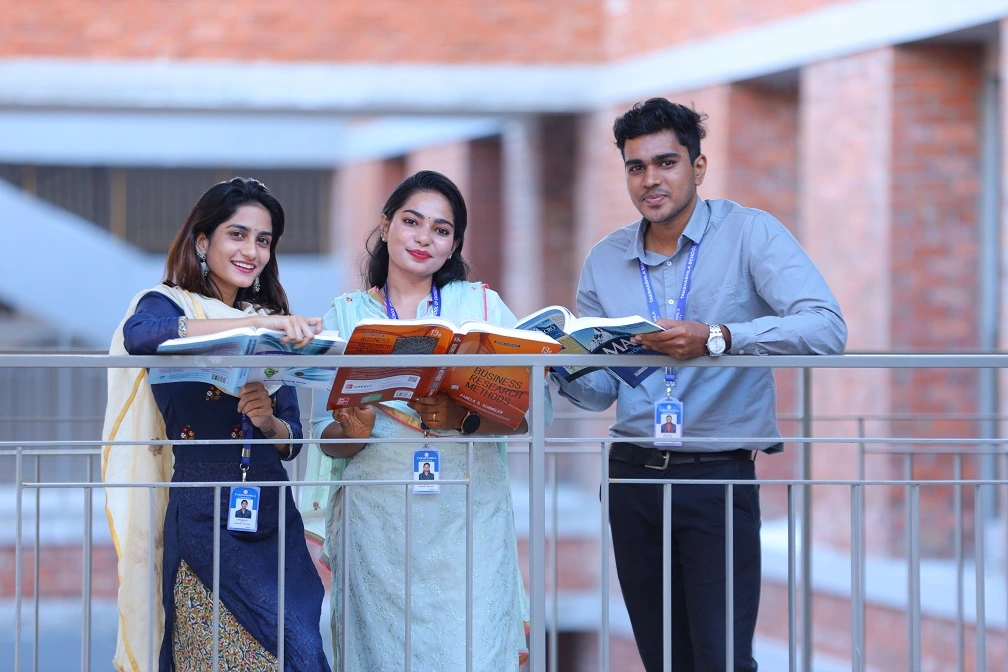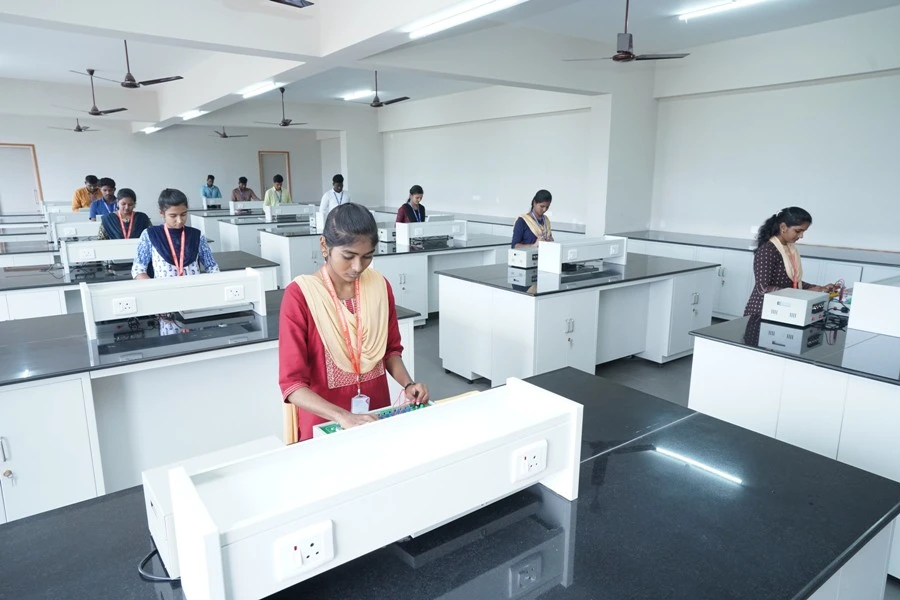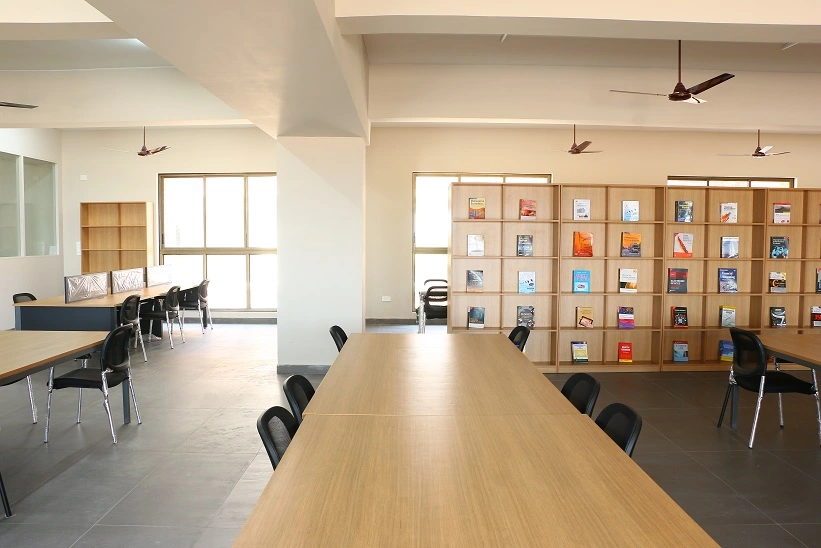B.Sc. Cardiology Technology
- Hands-on Training
- Faculty with International Experience
- Advanced Curriculum
- Upto 100% Scholarship based on merit

About the Course
The B.Sc. in Cardiology Technology at Takshashila University is a 3-year undergraduate programme that prepares students for careers in the rapidly advancing field of cardiovascular technology. This programme equips you with the necessary skills and knowledge to operate state-of-the-art diagnostic equipment used in the diagnosis and treatment of heart diseases. The curriculum covers essential topics in cardiology, including electrophysiology, ECG interpretation, stress testing, and echocardiography. As a student, you will receive hands-on training, learn to work with healthcare teams, and contribute to patient care by assisting in diagnosing and monitoring heart conditions.
Course Curriculum

Year 1
The first year provides an introduction to medical sciences and cardiology fundamentals. You will learn about human anatomy, physiology, and the basic concepts of heart function, alongside an introduction to cardiology technologies and their applications.
Key Subjects: Anatomy and Physiology, Basic Cardiology, Cardiovascular Anatomy, Clinical Chemistry, ECG Basics, Medical Terminology.
Year 2
In the second year, the focus shifts to advanced topics in cardiology and diagnostic techniques. You will study topics such as cardiac imaging, stress testing, echocardiography, and electrophysiology. The practical components will prepare you for hands-on experience in cardiology labs.
Key Subjects: Cardiovascular Pathology, Echocardiography, Electrocardiography (ECG), Cardiac Imaging Techniques, Stress Testing, Cardiac Rehabilitation.
Year 3
In the final year, you will specialise in advanced cardiology diagnostic technologies, including invasive cardiology procedures. You will also complete an internship, working in clinical settings to apply your skills in real-world scenarios and learn from experienced cardiology professionals.
Key Subjects: Invasive Cardiology, Cardiac Intensive Care, Advanced Electrocardiography, Patient Management in Cardiology, Internship/Project Work.
Programme Outcomes (POEs)
Upon completing the B.Sc. in Cardiology Technology, you will have developed the following competencies:
Advanced Diagnostic Skills
You will be proficient in performing and interpreting various diagnostic tests used in cardiology, including ECGs, echocardiograms, and stress tests.
Cardiovascular Imaging Techniques
You will be skilled in using advanced imaging equipment to assess and monitor heart function, ensuring accurate diagnosis and treatment.
Patient Care and Monitoring
You will learn to provide excellent patient care, especially in cardiology departments, where patient monitoring is crucial to treatment success.
Cardiac Rehabilitation
You will be trained in assisting with cardiac rehabilitation, helping patients recover and manage heart conditions effectively.
Research and Innovation in Cardiology
You will be equipped to contribute to cardiology research, using the latest technologies to improve diagnostic procedures and treatments.
Healthcare Collaboration and Communication
You will develop strong communication skills, ensuring effective collaboration with cardiologists, nurses, and other healthcare professionals.
Programme Outcomes (POs)
The B.Sc. in Cardiology Technology will help you achieve the following broader learning outcomes:
PO1: Proficiency in Cardiovascular Diagnostics
You will gain expertise in diagnosing and monitoring cardiovascular conditions using cutting-edge technologies and diagnostic equipment.
PO2: Clinical and Technical Expertise
You will acquire both clinical and technical skills necessary to assist in the diagnosis, treatment, and management of heart disease.
PO3: Ability to Work in Healthcare Teams
You will be able to work effectively as part of a cardiology team, assisting physicians and other healthcare professionals in delivering the best patient care.
PO4: Communication Skills
You will develop strong verbal and written communication skills to interact with patients and medical staff, ensuring clear and effective exchange of information.
PO5: Analytical and Critical Thinking
You will refine your ability to critically analyse test results and clinical data, enabling you to assist in decision-making processes for patient care.
PO6: Professionalism and Ethics
You will be trained to adhere to high standards of professionalism and ethical practices in the healthcare setting, ensuring patient confidentiality and integrity.
Programme Specific Outcomes (PSOs)
Through this programme, you will develop the following specific competencies:
PSO1: Specialisation in Cardiovascular Diagnostics
You will gain expertise in specialised diagnostic techniques, such as echocardiography, ECG, and stress testing, crucial for diagnosing heart diseases.
PSO2: Proficiency in Cardiac Imaging
You will develop skills in using imaging technologies like ultrasound and MRI to assess heart function, contributing to accurate diagnosis and treatment planning.
PSO3: Knowledge of Cardiac Interventions
You will acquire knowledge of invasive and non-invasive interventions in cardiology, including catheterisation and heart monitoring devices.
PSO4: Cardiac Rehabilitation and Patient Management
You will learn the principles of cardiac rehabilitation, assisting patients in their recovery after heart procedures and improving long-term health outcomes.
PSO5: Expertise in Heart Disease Management
You will understand the various types of heart diseases, their risk factors, and the most effective diagnostic and therapeutic approaches.
PSO6: Clinical Research and Innovations
You will gain the ability to contribute to clinical research in cardiology, improving diagnostic techniques and developing new therapies for heart conditions.
Career Scope
Graduates of the B.Sc. in Cardiology Technology programme are well-prepared to pursue careers in hospitals, diagnostic centres, and cardiac care units. Career opportunities include:
Cardiology Technician
- Role: Perform diagnostic tests, including ECGs and stress tests, to assess heart function.
- Salary: ₹3,00,000 to ₹6,00,000 per annum.
Cardiac Sonographer
- Role: Conduct echocardiograms and other cardiac imaging tests to monitor heart health.
- Salary: ₹4,00,000 to ₹8,00,000 per annum.
Electrocardiogram (ECG) Technician
- Role: Specialise in performing and interpreting ECGs to diagnose heart conditions.
- Salary: ₹3,50,000 to ₹6,50,000 per annum.
Cardiac Technologist
- Role: Assist cardiologists in diagnosing and treating heart diseases using diagnostic equipment and techniques.
- Salary: ₹4,00,000 to ₹8,00,000 per annum.
Cardiac Rehabilitation Specialist
- Role: Work with patients recovering from heart surgery or treatment, helping them regain strength and improve cardiovascular health.
- Salary: ₹4,50,000 to ₹9,00,000 per annum.
Research Assistant in Cardiology
- Role: Assist in clinical research studies, contributing to the development of new diagnostic and treatment methods in cardiology.
- Salary: ₹5,00,000 to ₹10,00,000 per annum.
Why TAKSHASHILA?

Cutting-Edge Curriculum
The B.Sc. in Cardiology Technology is designed to provide both theoretical knowledge and hands-on experience with modern diagnostic equipment.
Industry Partnerships
Our collaborations with hospitals and diagnostic centres give you the opportunity to gain practical exposure and industry connections.
Experienced Faculty
Learn from faculty members who are experts in cardiology and medical technology, providing guidance throughout your studies.
Hands-On Learning
Gain practical experience in state-of-the-art labs and through clinical internships, ensuring you are well-prepared for a career in cardiology.

- Applicants must have completed their 10+2 or equivalent with a minimum of 50% marks in Physics, Chemistry, and Biology.
- Entrance exams or personal interviews may be required as part of the selection process.

For All Programmes except MBA, MCA, M.Tech, and Integrated Programmes offered by Sunstone, FacePrep, Kalvium and NxtWave
|
S.No |
% of Marks |
Scholarship Amount in Tuition Fees per year |
|
1 |
60% – 75% |
10% |
|
2 |
Above 75 % – 90 % |
25 % |
|
3 |
Above 90 % |
50 % |
Calculation of percentage of Marks (+2 of HSC / 2nd Year of APBIM or +2 of CBSE or Equivalent)
- Engineering – Average marks in Mathematics, Physics, Chemistry/Computer Science
- Lateral Entry – Average marks in Diploma Programme.
- Agriculture – Average marks in Physics, Chemistry, Biology / Botany &Zoology
- AHS / BPT / Pharmacy – Average marks in Physics, Chemistry, Biology / Botany &Zoology/Bio Tech
- UG – Arts & Science / Hotel Management – Overall +2 marks – (+2 of HSC / 2nd Year of APBIM or +2 of CBSE or Equivalent)
- PG – Overall % in UG
- Diploma – Average mark in 10th /Equivalent
MBA, MCA, M. Tech, and Integrated Programmes offered by Sunstone, FacePrep, Kalvium and NxtWave – No Academic Scholarship applicable.
Student Experience at Takshashila University
At Takshashila University, the B.Sc. in Cardiology Technology offers you a hands-on learning experience with access to modern labs, real-world clinical settings, and mentorship from experienced professionals.
What you can look forward to

Practical Learning
Gain hands-on experience in the latest cardiology diagnostic techniques, including ECGs, echocardiograms, and stress tests.
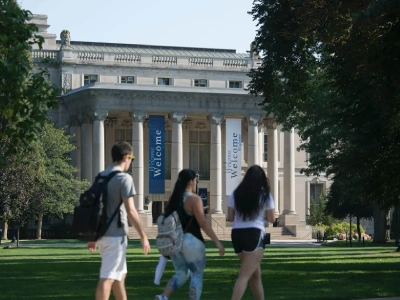
Collaborative Environment
Work alongside cardiologists, nurses, and other healthcare professionals to gain a well-rounded understanding of patient care.

Industry Exposure
Take part in internships and clinical placements in renowned hospitals and diagnostic centres, enhancing your practical knowledge and skills.

Student Support
Our faculty and staff provide ongoing guidance, helping you succeed in your academic and professional journey.
Spread over 150 acres
At Takshashila University, you will have ample opportunities to hone your skills in real-world healthcare settings, utilising state-of-the-art medical facilities and simulation labs on our 150-acre campus.
Start your journey in the rapidly growing field of cardiology!
Frequently Asked Questions (FAQs)
What is the duration of the B.Sc. in Cardiology Technology?
The course lasts for 3 years, divided into six semesters.
Do I need prior experience in cardiology to apply?
No, prior experience is not required. The programme is designed to teach you everything you need to know.
What career support is available after graduation?
Takshashila University provides job placements, internships, and career counselling to help you start your career in the healthcare sector.
Is the B.Sc. in Cardiology Technology internationally recognised?
Yes, the programme is designed to meet global healthcare standards, preparing you for international career opportunities.

